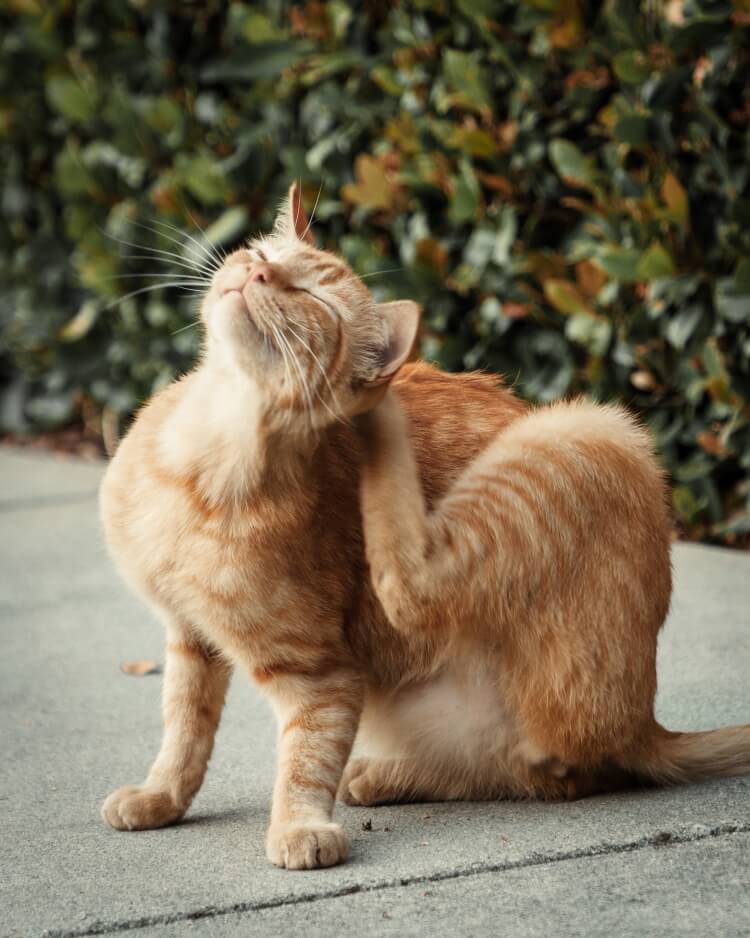The blood of animals, including cats, is what fleas, which are tiny, wingless insects, live on. They are frequent in hot, muggy climates and can harm your cat in a variety of ways, from minor annoyance to more severe conditions like anemia and tapeworm infections.
The risks of fleas and how to safeguard your cat from these bothersome parasites are covered in this piece.
Fleas Can Be Dangerous
For your cat, fleas can pose a significant health risk in addition to being an annoyance. These are some of the risks connected to cat flea infestations:
Skin Irritation
Your cat may experience skin irritation, itching, and pain from flea bites. Flea saliva may cause an allergic response in some cats, which can result in more serious skin rashes and even hair loss.
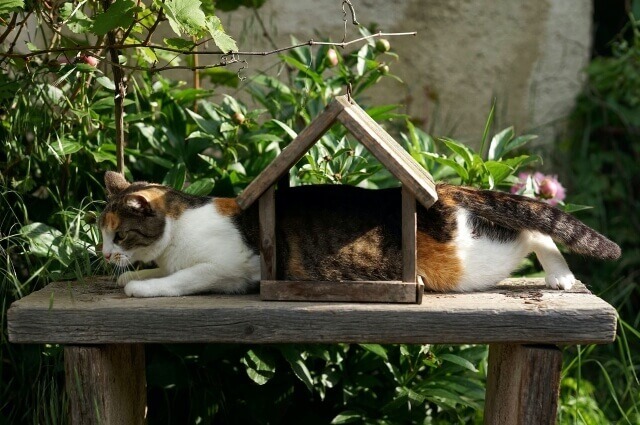
Anemia
Your cat may experience substantial blood loss during severe flea infestations, which can cause anemia. If untreated, anemia can result in weakness, exhaustion, and even mortality. Because red blood cells are in charge of distributing oxygen throughout the body, a drop in their population can cause organ harm, weakness, and exhaustion.
Flea-induced
Anemia is the term used to describe anemia brought on by fleas. It happens when parasites consume a cat’s blood, which results in a reduction in blood volume.
When fleas feed on a cat’s blood, they can consume up to 15 times their own body weight in blood per day. This can lead to significant blood loss over time, especially in kittens and senior cats, who may have weaker immune systems and are less able to tolerate blood loss.
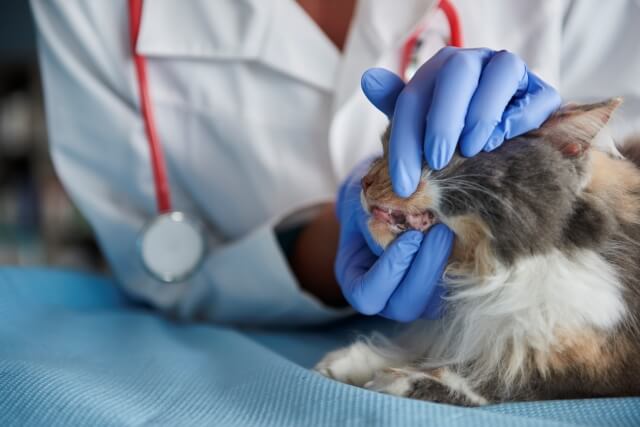
In addition to blood loss, fleas can also transmit diseases that can cause anemia in cats. One such disease is known as feline infectious anemia or hemotropic mycoplasmosis, which is caused by a type of bacteria that is transmitted through flea bites. This disease can cause severe anemia and can be fatal if left untreated.
Anemia caused by fleas can be difficult to detect, particularly in its early stages. However, some warning indications include pale gums, lethargy, lack of appetite, and weakness. If you observe any of these symptoms in your cat, take them to the vet immediately for a thorough examination.
Tapeworm Infections
Fleas can contain tapeworm eggs, which can infect your cat if he or she eats an infected flea while grooming. Tapeworm infections can produce diarrhea, vomiting, and weight loss, among other symptoms.
Infections
Flea bites can also lead to infections, particularly if your cat scratches or bites at the affected area. Bacterial infections can occur, which can cause additional health problems.
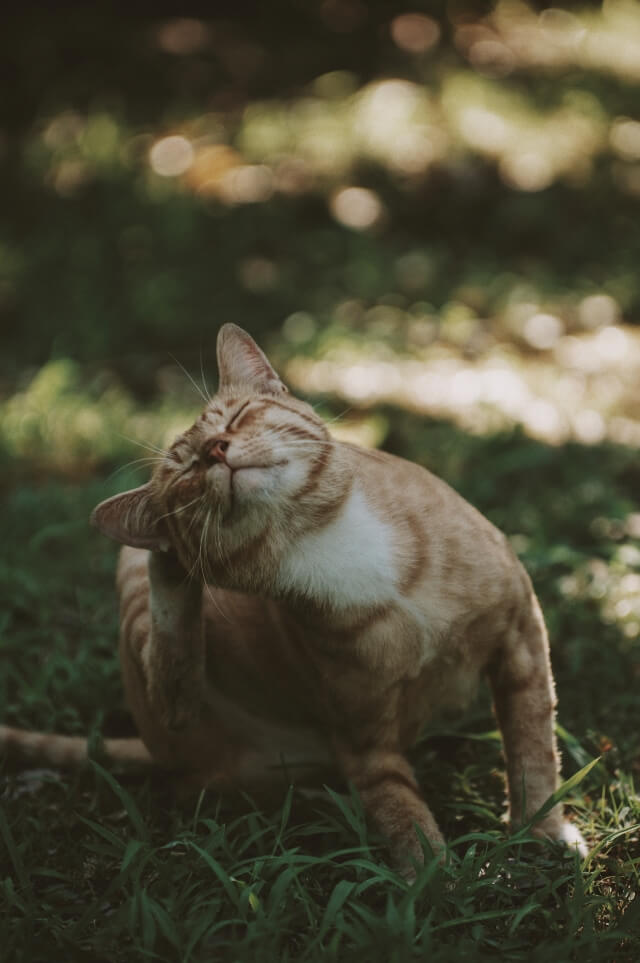
Protecting Your Cat from Fleas
Now that you know the dangers of fleas, it’s important to take steps to protect your cat from these parasites. Here are some tips to help keep your cat flea-free:
Topical flea treatments
These are rubbed onto the cat’s skin and can shield it from fleas for up to a month. A few well-known topical flea remedies for cats are Revolution, Frontline, and Advantage.
Oral flea remedies
Oral flea remedies which come in the form of chewable tablets or pills that cats can take, can also offer protection for up to a month. The well-known oral flea remedies for cats are Comfortis and Capstar.
Cats can wear collars with chemicals in them that repel and destroy fleas, known as flea collars. Seresto and Hartz are a couple of the well-liked flea collars for pets.
Flea sprays
These are liquids that can instantly eradicate fleas when applied to a cat’s fur. Cats can use famous flea sprays like Zodiac Flea & Tick Spray and Vet’s Best.
Keep Your Home Clean
Fleas can readily infest your home, so it’s critical to maintain a clutter-free, clean environment. Vacuum your carpets and furniture frequently, and wash any bedding or other fabrics that come into touch with your cat.

Maintain Your Yard
It’s crucial to clean your yard for fleas if your cat spends time outside. Treat the places where your cat spends the most time with a flea spray or granules.
Regular Grooming
By removing any fleas or flea eggs from your cat’s coat, regular grooming can help avoid flea infestations. Give your cat routine flea shampoo baths and use a flea comb to inspect for fleas and flea eggs.
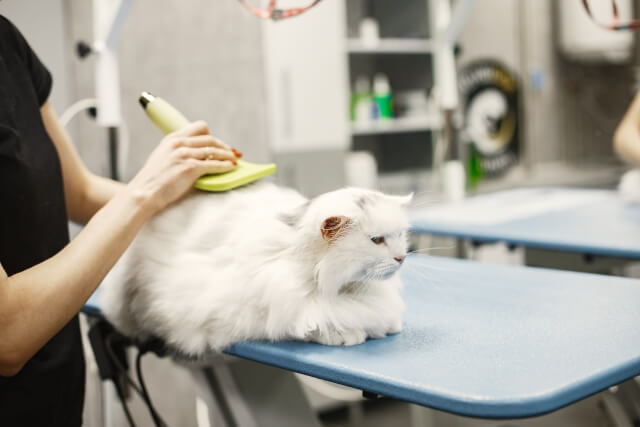
Check Your Cat for Fleas
If your cat spends time outdoors or around other animals, it’s especially essential to check them for fleas on a regular basis. Utilize a flea comb to search for fleas and larvae while keeping an eye out for flea dirt (small, black specks that resemble pepper).
Do not let your cat interact with other creatures that may have fleas
To stop fleas from extending to your cat, it’s crucial to treat any additional animals you have for fleas. This includes dogs, as they can also carry fleas.
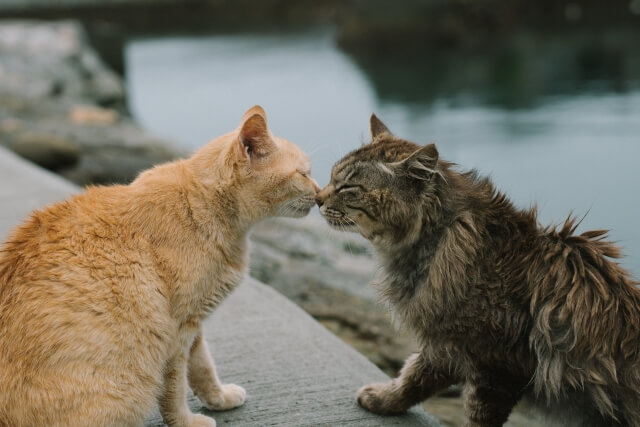
Use natural remedies
Eucalyptus, lemon, and lavender essential oils are some examples of natural therapies that can help repel fleas. You can spray these oils on your cat’s hair to ward off fleas after diluting them with water.
When using essential oils, it’s crucial to proceed with care because some of them can be harmful to cats. Before administering any natural treatments to your cat, always seek the advice of your doctor.

Conclusion
Although fleas can severely harm your cat’s health, there are steps you can take to keep your feline companion safe.
Use flea control products, keep your residence clean, treat your outdoor area, groom your pet on a regular basis, and check your cat for fleas to help maintain your cat healthy and flea-free.
Always speak with your veterinarian about the best flea control products for your cat and to seek veterinary attention if you think your cat has a flea infestation or other health issues.

